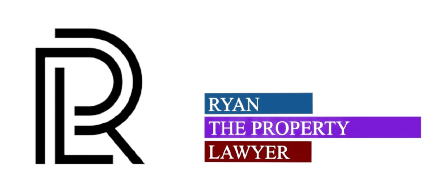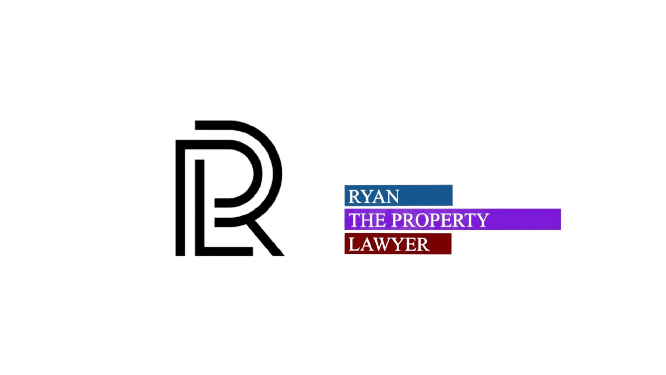Real Estate Financing Overview
Real Estate Financing’s Legal Aspects: Mortgages, Loans, and Liens are essential components of the real estate sector is real estate financing, which enables both private parties and corporate entities to purchase, develop, and invest in real estate. In order to support real estate transactions, entails securing financial resources through mortgages, loans, and other financing options. Yet, financing real estate is a difficult procedure with important legal implications. I will examine the main legal facets of real estate financing in this blog post, concentrating on mortgages, loans, and liens.
Knowing about mortgages
A mortgage is a type of legal document that serves as security for a loan taken out to buy or refinance real estate. It acts as a lien against the property, giving the lender security in the event that the borrower doesn’t pay back the loan. The following are significant legal factors to take into account while dealing with mortgages:
Mortgage Disclosures and Documents
Borrowers must sign several legal documents, such as the mortgage deed and promissory note, in order to get a mortgage. The details of the loan, including the repayment schedule, interest rate, late payment fees, and rights and obligations of both the lender and the borrower, are outlined in these agreements. Before signing, borrowers must carefully read and comprehend these contracts.
In addition, certain disclosures, such as the Truth in Lending Act (TILA) and Real Estate Settlement Procedures Act (RESPA) disclosures, provide borrowers with information about the costs, fees, and terms associated with the mortgage loan. To maintain openness and safeguard borrowers from predatory lending practices, compliance with these disclosure rules is crucial.
Insolvency and foreclosure
Lenders have the power to start foreclosure proceedings if borrowers don’t fulfill their mortgage repayment requirements. Through the legal process of foreclosure, the lender attempts to seize control of the home and sell it in order to recoup the remaining debt. The foreclosure process is governed by state law, and compliance with these regulations is essential to safeguarding the rights of both the lender and the borrower.
The legal ramifications and effects of defaulting on a mortgage can be lessened by being aware of the foreclosure process, the alternatives to foreclosure (including loan modifications or short sales), and the rights and remedies available to borrowers and lenders.
Loans and funding alternatives for real estate
Real estate financing includes a variety of loans and financing options in addition to mortgages. These loans are utilized for things like real estate investment, development, and building. When dealing with real estate loans, keep the following legal issues in mind:
Loan Contracts and Conditions
Loan agreements are written contracts between the borrower and the lender that specify the terms and circumstances of the loan. The loan amount, interest rate, payback plan, and any other fees or charges are all specified in these agreements. Both borrowers and lenders must be aware of the conditions of the loan agreement in order to comply and safeguard their own interests.
Personal Promises and Security
In some circumstances, lenders could ask borrowers to offer personal guarantees or property as security for the loan. Even if the collateral can’t cover the amount, a personal guarantee makes the borrower personally responsible for the loan’s repayment. The loan may also be secured by collateral, such as other real estate or assets. Borrowers must be aware of the legal ramifications of personal guarantees and collateral since they can be subject to significant financial and legal obligations that extend beyond the particular property being financed.
Default on a Debt and Remedies
Similar to mortgages, there may be legal repercussions if a real estate loan is not repaid. In the event of a default, lenders have a number of options at their disposal, including filing a lawsuit, requesting a judgment, or starting the foreclosure process. Borrowers must be conscious of their In the event of loan default, borrowers need to be aware of their rights and the potential repercussions. It is essential to review the loan agreement and understand the lender’s remedies, as well as any potential alternatives or negotiation options that may be available to mitigate the legal implications of default.
Encumbrances and liens
Encumbrances and liens are formal claims made against real estate as collateral for a debt or obligation. In order to finance real estate, it is essential to comprehend the various liens and their legal ramifications. These are some crucial factors to remember:
Home Equity Liens
A mortgage lien is a sort of voluntarily imposed lien used to secure a mortgage loan on a piece of real estate. In the event of default, it grants the lender the power to foreclose on the property. When transferring ownership or refinancing the property, mortgage liens must be removed.
Engineer’s Liens
Contractors, subcontractors, or suppliers that have contributed labor or supplies to construction or improvement projects but have not received full payment file mechanic’s liens. They have a legal claim over the property thanks to these liens. It’s crucial to comprehend the mechanic’s lien laws and processes to safeguard the interests of both contractors and property owners.
Fiscal Liens
When property owners don’t pay their property taxes, the government imposes tax liens. In order to recoup the unpaid taxes, the government has the legal authority to seize and sell the property. To prevent any legal problems and guarantee a clean title, it is crucial to comprehend the procedure for dealing with and resolving tax liens.
Justice Liens
When a court awards a monetary judgment against a property owner, judgment liens are produced. These liens may be placed on property for a number of reasons, including unpaid bills, court orders, or fines. To safeguard the title of the property and prevent issues during real estate transfers, judgment liens must be taken care of.
Conclusion
The financing of real estate necessitates navigating a dense web of legal considerations, such as loans, liens, and mortgages. All parties participating in real estate transactions must comprehend the legal requirements and difficulties posed by these characteristics.
Borrowers can protect their interests by making educated judgments after properly reading and comprehending the mortgage documentation. The same rules and regulations must be followed by lenders when dealing with defaulted mortgages and foreclosure actions.
Furthermore, it’s critical for both borrowers and lenders to comprehend the terms and circumstances of real estate loans, such as personal guarantees and collateral requirements. The interests of all parties involved can be safeguarded by properly handling loan defaults and investigating all possible options.
Last but not least, it is crucial for property owners, contractors, and other stakeholders to understand the various forms of liens and their repercussions. Property owners can secure clear titles and enable easy real estate transactions by proactively addressing and resolving liens.
In general, using the services of knowledgeable real estate professionals and lawyers can offer helpful direction and assistance while navigating the legal facets of real estate financing. Stakeholders can manage real estate financing with confidence and ensure a successful and legally compliant transaction by following legal requirements, comprehending rights and obligations, and seeking professional help when necessary.
Author Profile

Latest Blog
 Uncategorised22 December 2023What Constitutes a Legal Partnership in Ontario?
Uncategorised22 December 2023What Constitutes a Legal Partnership in Ontario? Uncategorised22 December 2023Characteristics of a Corporation in Ontario
Uncategorised22 December 2023Characteristics of a Corporation in Ontario Uncategorised22 December 2023Intentions Matter When Co-Owning Property
Uncategorised22 December 2023Intentions Matter When Co-Owning Property Uncategorised22 December 2023Consequences of Operating an Ontario Partnership
Uncategorised22 December 2023Consequences of Operating an Ontario Partnership




